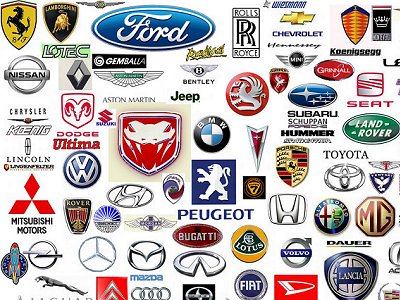
LOGOS
The commercial world’s brands offer pale, imitation promises in comparison to the eternal Logos.
It’s said that children recognise certain commercial brands before their own name, which is a triumph of corporate marketing. The most recognisable logo in the world is the golden arches of McDonalds. The two colours most likely to stimulate a sense of hunger when put together are – you guessed it – red and yellow. People know what to expect of McDonalds the world over and, as McDonalds are notoriously litigious, I should point out that what we get is a delicious, nutritional meal, helping to keep us fit and healthy (as Morgan Spurlock’s documentary Super Size Me showed, as you may recall).
Why are brands so important? One reason is that companies know there isn’t a big difference between rival products: Coke v. Pepsi; McDonalds v. Burger King; Nike v. Reebok – so they need to establish emotional ties of loyalty to the name. We do not purchase clothes, food or cars but a dream, an aspiration, a lifestyle.
With the Body Shop we aren’t buying cosmetics, we’re being kind to the environment. We do not purchase trainers at Nike but the magic of sport. At the Gap we don’t try on clothes, we’re adopting a teenage dream – or we would be but for the fact that the bloke trying to look cool next to us is always twenty years older. And brands are everywhere – on buildings, buses, billboards, even bodies. The commercial world increasingly co-opts the sense of history and place that give people identity and community, like Sports Direct’s shameless sponsorship of Newcastle United’s proud stadium, St. James’ Park.
Sometimes the power of the brand is disturbing. A few years ago a school in Georgia, USA held a Coca Cola Day, where Coke executives gave talks to the school about their corporate values and 1200 pupils put on Coke T Shirts for the day. Actually, it was 1199 to be precise, because one pupil protested against the commercial invasion of a place of learning by choosing to wear a Pepsi T Shirt instead. You might have thought this was evidence of an independent, dissenting thinker the school would be proud of. He was rewarded with a suspension.
The cross is an odd logo, when you think about it. In a way it is the Church’s brand. People approaching baptism are often marked with the sign of the cross on their heads, symbolising their belonging to Christ in a kind of branding. If Nike’s brand has ‘the magic of sport’ written over it, what does the cross say?
I love you so much that I died for you.
With other brands you can scratch the surface and find nothing underneath. The corporate world is not interested in you as a person, all they want is your money. And they can’t change your life, despite their inflated promises. By contrast the cross has lasting power in the life of an individual. Those who follow Christ have a kind of invisible logo written across them. In demonstrating loving kindness this logo is revealed, like dye on invisible ink. The Christian challenge is to let this be seen.
In the opening passage of John’s Gospel, Jesus is called ‘the Word’ – ‘in the beginning was the Word’. The Greek for Word is logos. Sweep away those other logos - only one can change a human life for good.
POPULAR ARTICLES

Obama's Covert Wars
The use of drones is going to change warfare out of all recognition in the next decades.

Through A Glass Starkly
Images of traumatic incidents caught on mobile phone can be put to remarkable effect.

What Are British Values?
Is there a British identity and if so, what has shaped the values and institutions that form it?


